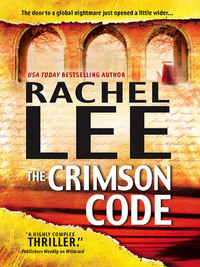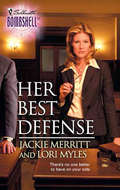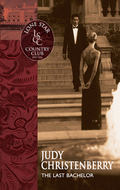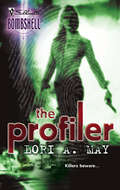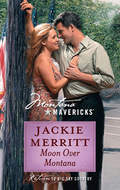Книгу нельзя скачать файлом, но можно читать в нашем приложении или онлайн на сайте.
Читать книгу: «The Crimson Code», страница 2
Moab, Jordan, 1230 B.C.
“It is time.”
The young Levite, Elezar, looked at Moses with something akin to fear. The youth was not yet old enough to become a priest, so he was still serving Moses and learning the holy ways, as he had been since his twelfth year. Serving a man who spoke with the Lord through the fire and smoke was often unnerving.
But nothing was as unnerving as this announcement, for it meant that Moses was about to die. Elezar could not imagine a world without Moses. Could not imagine that his own revered great-grandfather Eleazar was fit to take Moses’s place. Eleazar was a great priest, true, and could enter the tabernacle that held the terrifying Ark without injury or death but…
Moses was everything to these people, though they often failed to recognize it. They were a stubborn people, difficult to please, often quick to grumble when Moses was not there to steer them. Elezar tried hard not to be that way himself. But now he wanted to cry out to the Lord against the sentence that had been set on Moses.
“Come,” said Moses, picking up a staff and waving the young man to do the same. “We must climb Mount Nebo.”
Leaving the encampment on the plain behind them, they began to climb into the Pisgah Mountains toward Nebo, the highest peak. Elezar half expected to hear the rumble of the Lord’s voice, or see fire atop the peak as his ancestors had seen at Mount Sinai. Which was really not Mount Sinai, but Moses would not tell him where it really was, and none remained among the tribes who could recall, for all who had set out from Egypt with Moses were now dead.
After a long, hot climb, they reached the top of Mount Nebo. Moses spread his arms wide as if to embrace the breathtaking view.
“There, Elezar, you see? There is the land that was promised to the sons of Israel. I will not enter with the tribes, nor will you.”
Elezar stiffened. “But I thought…”
Moses turned to him, his eyes kinder than Elezar had ever seen them.
“Let us sit a while and talk, Elezar.”
Though it was said he was over a hundred and thirty years old, Moses sat with all the ease of a youth like Elezar on the hard, rocky ground. Elezar sat facing him.
“There are things you must understand, Elezar.”
The young man could no longer hold silent. “It is wrong that you cannot enter the Promised Land. It is wrong that you must die for such a small error when so many of our people have made larger ones and lived! Why can you not offer an atonement sacrifice? Why is the Lord being so harsh with you?”
Moses listened to the protests, smiling a little all the while. “My time to leave has come. I am no longer needed here. But I do not want these people to feel abandoned.”
Elezar knitted his brow, sensing there was something behind those words.
“Child, do you know your lineage?”
“Yes, I do.”
“Do you know the line of your mothers?”
Elezar hesitated. “I know best the line of my fathers.”
“You perhaps do not know then that you are descended from my line, as well. My daughters and their daughters married your fathers many times over. You are a Levite, but you are also mine.”
The news caused a trembling in Elezar, like a leaf disturbed by the wind. “It has not been told to me.”
“It was as I wished it. Until now. There are things you must understand, mysteries you must learn. These mysteries were once the pride of Egypt. They were set down on a sappir gemstone, written by Thoth himself, and discovered by my brother, Pharaoh Akhenaten, when we were but children. We studied the stone throughout our youth. And Akhenaten was the first to fully understand it. Thus he began the worship of the One True God… Aten…our Lord. The stone was once in the Ark. Now…”
Moses opened his leather bag and showed Elezar a polished sapphire pyramid, so small that it fit in the palm of the hand. A blue pyramid that seemed to hold as much depth as the night sky. Elezar gasped, amazed as he thought he saw shapes dancing within the stone. But he could not imagine such a thing, that Moses would steal from God himself.
“Relax, my son,” Moses said, reaching out to pat Elezar’s shoulder. “As I said, this is not the tablet of the law. This is far older. And far too powerful to leave in untrained hands. The Hebrews are a great people, but too stiff-necked for their own good sometimes. A knowledge such as this, in the hands of a people preparing to make war, would be…horrifying. But I have left them the Urim and the Thummim, which will be enough to aid them.”
“What is this power?” Elezar asked. “Is God not the only power that exists?” He felt his world reeling.
“There is only one God, and he is our only God.” Moses opened a small pouch and from it poured a fine white powder. “Manna,” he said. “The Hebrews think it came down from the heavens. In fact, it is a recipe from this stone, and El Shaddai showered it upon us at night as we camped near the foot of the mountain. Eat some, my son, for it will give you long life.”
Gingerly, Elezar reached for the powder, allowing Moses to pour some into his hand. He tasted of it and found it not unpleasant, though not exactly savory. It had the slightest hint of honey to it. The climb had dried his mouth and throat, making swallowing difficult, but he had brought a water skin and was able to wash it down. Moses, too, ate of the powder.
“Now,” said Moses, “the people will think I have died. You will descend the mountain and tell them I have gone to my fathers, and then you shall cleanse yourself as the law requires after touching a corpse. By this they shall believe I am dead and that you have buried me.
“Then, by night, you shall return to me. We must go to the place where your real training can begin. The mysteries must pass down, and you will be their messenger.”
Elezar’s jaw had fallen. “I am to lie?”
“It will not be a lie, for I am returning to my fathers. And as far as my people are concerned, I will be dead and gone. As will you. It will be years before you re-enter the world, Elezar, and when you do, you will be a man much changed, for you will know the secret teachings of El Shaddai.”
El Shaddai. The Lord of the Mountain.
2
Guatemalan Highlands, Present day
Father Steve Lorenzo had no idea of the carnage spreading around the world on that Christmas. His goal in life had become very simple: to keep himself and his flock alive. For the past fourteen months, he and his Quiche companions had wandered these mountains, hunted by both the Guatemalan police and the rebels. His once smooth chin now sported a bushy beard, and he could hardly remember the sensation of a hot bath.
And yet it was Christmas, and most of his friends were still alive to celebrate it.
He had no vestments. His cassock had long since given way to peasant clothing offered to him by his friends, who could hardly spare even that. He wore sandals one of his flock had made from vine and sections of tire rubber.
And never had he felt closer to God.
When life seemed its worst, as it had often since the police attack on the village of these people, he found a deep well of spirituality that reminded him of the early days of Christianity, when to hold faith in Jesus brought persecution and often demanded flight. Those early Christians had possessed little more than his tiny flock of survivors. In this time he lived as the early martyrs had lived, and it refreshed his faith even as it wore him out.
But his little band was well versed in the skills needed to survive in these mountains. The food might not be as reliable, nor always as familiar, as their rich fields of maize and their herds of sheep, but the forest was bountiful in its own right, and his friends knew how to use everything it provided.
This Christmas morning he celebrated Mass yet again on an altar made of fallen trees, with tortillas made of corn flour he had managed to purchase—along with beans—from a village they had passed a few days ago, with the few quetzals remaining in his pockets. The women had made the tortillas, patting them back and forth to flatten the balls of dough with an expertise that came from lifelong experience. They had been lightly cooked on a rock set amidst the burning coals of a fire. A nearly smokeless fire. Steve was still amazed that they could manage that here in the jungle.
He used the chalice and paten given him on his ordination so long ago by family and friends. The years had burnished them, and now when he touched them he remembered the faces of all his loved ones. Yet he was determined that when the time came, he would sell them without regret to keep these people alive.
It had been a long time since he had even thought of the Kulkulcan Codex, or the reason he had been sent to these people. The Church’s concern was so far away now, so remote.
He smiled into the faces of his flock and lifted a tortilla for all to see. Esto es mi cuerpo. This is my body.
This was all that mattered.
Fredricksburg, Virginia
Earlier that morning, FBI agent Miriam Anson was in church with her husband, Terry Tyson, a D.C. homicide detective, when her pager began to vibrate insistently. She had been tempted to ignore it entirely until after the service—this was Christmas, after all—when it started buzzing a second time. She turned to Terry, about to whisper an apology, when she saw he had pulled his own pager off his belt and was looking at the number.
Damn! The word exploded in her head, and she touched Terry’s arm. He looked at her, and she jerked her head toward the rear doors. He nodded and followed her just as the congregation stood up to sing a hymn. Nearly a thousand voices singing “Pass Me Not” followed them out into the frigid morning air.
Fredericksburg, beneath a bright blue sky and a layer of fresh snow clinging to trees and patches of grass, looked beautiful this morning. Picture-postcard perfect, Miriam thought as she grimly pulled her cell phone from her purse and dialed. Terry turned his back to her and did the same.
If they were both being paged…
“Anson,” Miriam said into her phone. “Kevin Willis called me.”
Kevin’s voice sounded in her ear a second later. “Come in now,” he said. “Black Crescent.” The current code for terror attack.
All Christmas spirit vanished from Miriam’s heart. “I’m on my way.” She flipped her phone closed and saw Terry turning to her, his dark face creased with consternation.
“I have to go in,” he said.
“Me, too.”
Now, hours later, as she sat through one briefing after another on the growing worldwide horror, Miriam wondered at the hearts of men who could perpetrate such atrocities on this holiest of days.
It would be so easy to give in to hate. But hate would not bring her any closer to justice. It would only push her closer to the very evil she fought.
As the briefing officer presented yet more grim statistics and the anger flashed through her, Miriam reminded herself of the central truth of the Christmas sermon she had heard: God appears in this world in stables, not in mansions or palaces, in the quiet of the human heart and not in a blaze of herald trumpets.
And not in the blinding, crushing explosions of bombs.
No, she couldn’t blame God for this one. Humans had done this all on their own. And if Miriam could help track them down, in the dark, silent corners where they hid…that would be the coming of God in this madness.
Rome, Italy
“I have to go to Baden-Baden,” Renate said to the chief. Lawton Caine, who was in the office, too, looked at her with something between sympathy and concern.
Jefe looked at her as if she were mad. “Are you out of your mind? You know the rules we play by.”
“They murdered my family,” she said tautly.
“I know.” The chief’s voice dropped with sorrow. “But you’ll do no good there now.”
“I have to go.”
“Damn it!” Cursing might be considered extremely impolite by Germans, but for once Jefe didn’t seem to care about cultural sensibilities. “Haven’t you noticed the pattern? Baden-Baden doesn’t fit.” He slapped his open hand against the paper map of the world on the back wall of his office, a map that covered nearly the entire space. “If you’re right, they’re after you!”
Lawton stiffened and straightened. “They think she’s dead.”
She shook her head. “After what happened in Idaho and Montana, they know better. There was absolutely no reason to pick that church in Baden-Baden if they thought I was dead. The grudge is an old one, Law. A very old one. What I did to the Brotherhood…”
The chief compressed his lips tightly. “I’ll have to forbid it. You stay here, Renate, where your skills can actually do some good.” He sighed. Then he ran his fingers impatiently through his dark hair. “Okay,” he said. “Renate, why don’t you tell me who would have the funds to support this attack, apart from the Saudi royal family.”
Renate regarded him stonily. “The Frankfurt Brotherhood.”
“Precisely! So why hit a parish church in Baden-Baden? To get you there. They’re hoping you’ll go to find out what happened to your family. Bookworm shows up again in her hometown. Renate, you nearly exposed them a few years ago. I don’t think they’ve forgotten.”
Renate lowered her head for a moment. Then she looked straight at the chief, her eyes like chips of glacial ice. “I’ll take a job as a dealer at the casino. I’ll change my appearance. My father worked there, and there will be talk. Plenty of it.”
“You’d be recognized within an hour. Renate, we could even give you contact lenses, hair dye and facial implants, and your old friends would still know you. You’re entirely too distinctive.”
“I’m not going to let them get away with this,” she said. “This is not negotiable, Jefe. I’m going to take the Brotherhood down. And I’m going to take out the son of a bitch who planted the bomb in my family’s church. It’s only a matter of how.”
“Then for God’s sake, let’s think about the how,” Lawton said. “He’s right. Going into Baden-Baden would do nothing but sign your own death warrant. Hell, we’re not going to find them in Baden-Baden anyway. You know that.”
“What’s their weakness, Renate?” Jefe asked. “The most you’ll find in Baden-Baden is a hit team waiting for you. A hit team you won’t even be able to trace back to them. So what is their weakness?”
“Money,” she said, instantly. “It’s their power base. It’s the blood running in the veins of the Brotherhood.”
“Well, blood runs back to the heart and the head,” Lawton said. “If we follow the money, we find the people who killed your family.”
“You can’t follow their money,” Jefe said. “They’re all bankers. They can hide money with the best of them. And you don’t even have a thread to pull to get all of it started. Renate, I know how you’re feeling, but the right thing to do is to focus on Black Christmas.”
“Our entire office is focused on Black Christmas,” she said, her voice dripping icy resolve. “The police agencies of the entire world will be working Black Christmas. You can spare me. You know that.”
“And we do have a thread to pull,” Lawton said. “We have Jonathan Morgan. Edward Morgan’s father. Edward was Brotherhood. If he was, his father is.”
Lawton had been on the case when Edward Morgan had masterminded the plan to kill U.S. Senator Grant Lawrence—at the time the front-runner for the Democratic presidential nomination—as well as financing a training camp for Guatemalan revolutionaries in Idaho. Although Lawrence had survived, he was now out of the presidential picture, seemingly content to be the senior senator from Florida. None of it could be proven in a court of law, however. None of it. That loose end still troubled Lawton more than he could say.
“That still doesn’t explain how you’re going to track their money,” Jefe said.
“Banks have a private Internet,” Renate said. “That’s how they transfer money, and I’ll bet the Brotherhood uses that network for its communications. If we can hack into that network, we can find them.”
“And how are you going to do that?” Jefe asked.
“I’m going to Frankfurt,” Renate said. “I broke in once before. I can do it again.”
“You’re not going alone,” Jefe said. “Lawton, you’re with her. You’ll need a computer guy, too. Take Assif Mondi from information services.”
“We may end up needing more than that,” Lawton said. “Niko Petropolis is available. He just got out of rehab. He took a bullet on that operation in Chechnya, remember?”
“I’ll have to ask the doctor if he’s field ready,” Jefe put in.
“So ask,” Renate said. Her voice was steely with resolve.
“Oh, I will,” Jefe replied. “But first, tell me what you have in mind.”
3
Saint-Arnans-la-Bastide, France
General Jules Soult, formerly of the French Army and now retired, sat in his study, enjoying a Cuban cigar as he looked up at the portrait of his renowned ancestor Marshall Jean Soult. The Marshall had built a great reputation in his service to Napoleon, although after Napoleon’s first exile he had briefly collaborated with the Bourbon king.
Soult pondered that collaboration as the television behind him continued its incessant assault of news about Black Christmas. Collaboration, he deemed, was often necessary for a man to achieve his ultimate goals. No shame therein.
Jules turned his head a fraction and watched the stream of videotape showing the worldwide destruction. He told himself he was sorry for all the lives lost and crossed himself while murmuring a small prayer as he had learned during his Catholic upbringing.
But the truth was that this plan had been his. Well, with a few added directions from his Order, an order that dated back to the Knights Templar. He still didn’t understand why they’d wanted to make that ridiculous detour to the small church in Baden-Baden, but he was a man who followed his instructions—to a point.
He turned back to the portrait of the first famous Soult. They were both military men, and as such they understood that there was a human price for every gain and every loss. Today’s activity was a major gain.
While the world reeled and grieved and hunted Islamic terrorists, his men would be doing their stealthy work in the streets.
Jules Soult was a man who studied history intently. George Santayana had said that those who do not study the past are condemned to repeat it. Soult agreed. One must study history in order to learn where the world’s great leaders had gone wrong and to improve upon plans that had gone awry in the past, one way or another.
Take Hitler, for example. Napoleon had tried to invade Russia and had been defeated by the winter. Hitler had not learned sufficiently from Napoleon’s lesson and had expected too much of his panzers.
Soult was determined not to repeat anyone’s mistakes. There was much to be learned in the historical record. Europe had passed the age where an emperor might be accepted, but it had not passed the day when it would accept a strong, unifying leader.
Soult knew he was that leader. His bloodline traced directly back to the Merovingian rulers of Europe, the blood that every ruler since the first century had carried or married into. He might never wear a crown, but he still believed he could reestablish a dynasty.
Much the way Hitler had. Only he would not make the same mistakes. No, he had studied history, and he knew what to avoid.
Hitler had lacked the gift of Islamic terrorism by which to demonize a people. For all of the long-standing hatred of those whom the bastard Church said had murdered the Christ, the Jews had done nothing to harm their European neighbors. And never again would the people of Europe be led to demonize an innocent race.
But radical Islam…that created an opportunity, one that he intended to exploit to the fullest. He had insinuated himself into the planning of Black Christmas—anonymously, of course—and ordered the bombings of the cathedrals. The original Black Christmas plan would not have served his needs. But what had actually happened would work perfectly.
European Muslims would be his scapegoat, the people against whom he could direct violence and thereby distract the people of Europe from his true aims. Moreover, as they joined in the violence against Muslims, they would become inured to hatred and killing. That coldness of heart would serve him well when the time came to recapture the rightful seat of Merovingian power.
Soon the phone would ring, and like Hitler before him, Soult would be given a free hand to conduct espionage against his enemies. He would hire his Ernst Röhm, create his brownshirts to incite the very violence he was sworn to prevent. Confidence in governments would falter, and when it did, he would step into the void.
That much of Hitler’s plan had been sheer genius. But he would not repeat that madman’s mistakes. No, Soult would do what Hitler could not, nor Napoleon before him. And Black Christmas was the key that had opened the doorway to his future.
He smiled up at the portrait, then took another satisfying puff on his cigar. The ducks were lining up beautifully.
It was a shame so many had died. He would light a candle for them. The Lord would certainly understand, because it was nothing less than the Lord’s birthright that he intended to reclaim.
As if on schedule, the telephone rang. He had been told to expect the call, and he knew who she was and what she wanted even before he picked up the telephone. There were advantages to having connections in the highest and most secret circles of power.
“General Soult,” he said, speaking in accented English.
“Ah, General,” the woman said. “You answer your telephone in English now?”
“I assumed it would be another American reporter asking for an interview,” he lied. “Apparently I was wrong. You are German.”
“Yes,” she said. “My name is Monika Schmidt. I am the director of the European Union—”
“Department of Collective Security,” he cut in. “I have seen you on the news many times today. You have had a very bad few days.”
“We have all had a very bad few days, General,” she said. “Once again, we find that our enemies are more resourceful than we had thought. And that we…”
She didn’t need to finish the sentence. The European news media had been finishing it for her for nearly twenty-four hours. How had the vaunted EUDCS, with its contacts in Interpol and the United States, totally missed the planning for Black Christmas? Frau Schmidt did not have an answer for them, though Soult could easily have supplied it. He had, after all, spent much of his career in French military intelligence. And he had used the skills he had learned there to direct the counterespionage operations for the men who had carried out the attacks.
“These things are always more complex than the public realizes,” he said, trying to affect a tone that mixed professional sympathy with the wisdom of experience. “It takes many years to develop the kinds of contacts that would have provided warning for such an operation.”
“And that is why I call you,” she said. “I have spoken with my superiors and explained to them the need for better human intelligence. You served in Chad and directed the French network in Algiers. You have worked in the Arab community before. You know these people.”
His contacts had not erred. She was, in fact, offering him a position—the very position toward which he had worked for fifteen years.
“Yes,” he said, smiling as he drew on his cigar. “I do. So, Frau Schmidt, how can I be of service to the European Union?”
Riyadh, Saudi Arabia
Monsignor Giuseppe Veltroni carried many problems on his back as he rode in a taxi through the streets of Riyadh to his appointment. To arrive here within two days of the attacks on so many Catholic churches was to put his neck on a chopping block. The people here cheered the destruction, of course. The “man in the street” did not understand the contributions the Church had made toward peace with and for the Muslim world. The average Saudi seemed all too unaware of how much work the Church had done for the Palestinians.
And this little detour was exceptionally dangerous, since he had deserted the protective phalanx the Saudis had provided for him in his capacity as an official representative of the Vatican. But he could not afford listening ears or spying eyes this afternoon. This afternoon he needed to be one-on-one with a man he had nearly come to trust, a man who seemed to have utterly broken that trust.
Beyond that, he was gravely concerned about the fate of Steve Lorenzo. Months had passed since the Guatemalan police had attacked Dos Ojos in an attempt to arrest a rebel involved in the bombing death of the U.S. ambassador. Since then, nothing had been heard from or about the priest he had sent there to find the Codex.
Monsignor Veltroni had virtually adopted Lorenzo, loved him as a son, and felt deep worry about whatever might happen to him. Except… Steve must be dead, or he would have gone to the bishop in Guatemala City, surely?
Veltroni’s heart ached and he wished there was something he could take back, some decision he could unmake so that Steve would return whole and unharmed. Yet he could not be sure the priest was dead, for no remains had ever been found. Perhaps he was still searching for the Codex?
If so, and if he was still with the survivors of Dos Ojos, Steve had both the Guatemalan police and army after him.
And perhaps someone else. Rumors had surfaced in Veltroni’s extremely sensitive intelligence web that someone called “The Hunter” might be pursuing the Codex, as well. If so…Steve faced more trouble than he could possibly imagine.
With a sigh, Veltroni adjusted his mufti, in this case a djellaba with a hood, so that he might blend in better. Beneath he wore his priestly black and his pectoral cross, but he knew better than to think they would save him from harm here.
The cab pulled up before an almost palatial residence. Ahmed Ahsami, a Saudi visionary, was also a member of the Saudi royal family, one of the more minor princes who could live a comfortable lifestyle but not an excessively lavish one. He was also an important official in the oil ministry. Apparently his lifestyle was comfortable enough that one of his employees stepped forward to pay the cab driver before Veltroni could fumble with the unfamiliar currency.
Then, without a word, he was led along surprisingly cool tiled hallways, past beautiful wall mosaics bright with color and into an interior courtyard, where an extravagant fountain bubbled cheerfully and a riot of green plants grew as if this were their native terrain.
The employee—servant?—motioned him to a padded bench. “Sheik Ahsami will send for you shortly.”
Shortly turned into ten minutes, but then the servant reappeared and motioned for Veltroni to follow. At once he was led into a spacious room that forsook the grandiosity of the rest of the building for a very businesslike aspect. Ahmed Ahsami, dressed casually in chinos and a blue business shirt, at once rose and came to greet him.
“Monsignor! It is good of you to come. And I can assure you that you were not followed. So we speak freely, yes?”
Veltroni’s eyes narrowed. “That is the entire reason I have made this trip, Sheik.”
“Please, call me Ahmed. I think we now have more in common than you believe.”
Before the discussion could proceed, however, in the best tradition of desert tribes a repast was laid before them on a long table. Hospitality first, then business. Veltroni chafed, but knew he would insult Ahmed if he did not partake with enjoyment and a considerable amount of inane chat.
As he sipped the powerful Turkish coffee, Veltroni studied his host. The initial smile had faded into a look of deep thoughts that did not run in pleasant waters. While he spoke the correct words as dinner was consumed, Veltroni could tell this was not a man in a state of silent celebration. When they had finished and retired to Ahmed’s drawing room, Veltroni knew it was upon him to break the ice—or shatter it.
“I needn’t tell you how I feel about the Christmas attacks,” Veltroni said. “The Vatican is justifiably and righteously angry. This was a very dangerous gambit, my friend…whoever did it.”
Ahmed studied him carefully, but Veltroni did not flinch. The accusation hung between them, and the burden lay upon Ahmed to dismiss it. Or to admit to it. Without one or the other, the Stewards could have no further dealing with Ahmed. Promises of peace could not survive acts of malicious brutality.
Finally, Ahmed spoke. “The situation is…complex, Guiseppi. There were acts on Christmas for which I and my men were responsible. There were others in which we were betrayed.”
“I know the answer, but I have to ask. You did not authorize the cathedral bombings?”
Ahmed shook his head. “No, my friend. All the attacks were to be on legitimate military, political and economic targets.”
“Like the oil platforms?” Veltroni asked.
Ahmed drew a breath. “Yes, like those. And as I’m sure you know, none of the workers there were injured. After all, why else did we choose to act on Christmas, a time when most at the intended targets would be safely at home? My teams had explicit instructions. They carried out their orders with professional discipline. Alas, my allies—” he spat out the word with anger “—had other ideas. Now we all lose.”
“Yes,” Veltroni said. “We all lose. I don’t suppose you will tell me about these…allies.”
“One betrayal does not justify another,” Ahmed said. “Even if they have no honor, I must answer to Allah for what I have done and what I will do.”
Veltroni considered that statement. Was there honor in protecting someone who has betrayed you, and who in that betrayal has committed mass murder? Once again, he found himself wishing he knew more of Ahmed’s religion. But Islam, like Christianity, suffered from sectarian schisms that rendered simple analysis impossible. Veltroni had no idea of Ahmed’s personal Islam or the tenets he held most deeply.
Бесплатный фрагмент закончился.
Начислим
+17
Покупайте книги и получайте бонусы в Литрес, Читай-городе и Буквоеде.
Участвовать в бонусной программе
